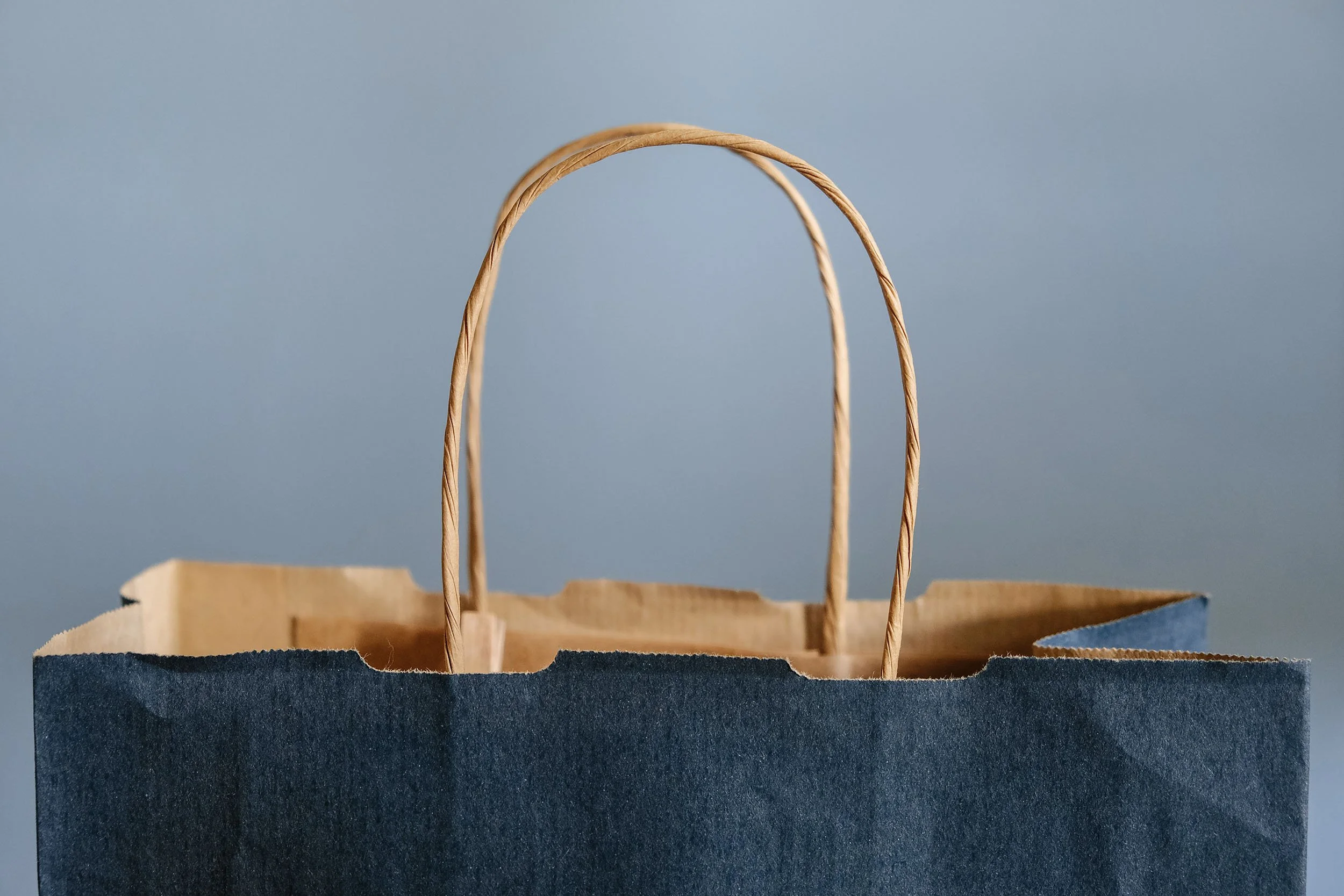Prevent Consumption Clutter with These Mindful Shopping Habits
Shopping habits are a major cause of clutter for many people. You can spend time sorting and organizing your belongings, but if you don’t consider how you consume going forward, there’s a good chance the clutter will creep back in.
To help shift into a more mindful way of shopping, I’ve created the following list of things to consider. I recommend bookmarking or printing this list and referencing it whenever you feel the urge to purchase something you may not need.
This first tip may seem obvious, but keep a shopping list and stick to it. Any.List or Apple Notes are great apps for shopping lists (plus you can share with your partner and/or family). In addition to your regular shopping lists, keep a wish list of items you would like to have but aren’t urgent needs to help avoid impulse purchases. If you stumble across something you’re excited about, check to see if it’s on your wish list. You can even set aside a special bank account for non-essential purchases to help stay on budget.
You can shop without buying. I absolutely love a trip to IKEA or The Container Store (both are my happy place), but many times I leave empty-handed. The experience of walking through the stores, seeing everything in person, and getting ideas for projects is enough satisfaction for me. I can appreciate items I see, but that doesn’t mean I need to own them.
You can shop without keeping. Make friends with the returns process. Truth be told, I order a lot online (mostly clothing), but end up returning 90% of it since I am very selective. The clothing stores I shop from most often do not have brick and mortar locations where I live, so online ordering is my only option. (I would love to shop more locally, but I am very petite and most brands do not carry my size.) When I get new items in the mail, I open them immediately and try them on. If it’s not a “hell yes!”, then it’s a “no” and gets sent back. I put the returns in the trunk of my car and drop them off at the local pack and ship store the next time I’m out. As a rule, always open and incorporate (or return) online orders immediately. Sometimes buying and returning is simply part of the research process to find the right thing, and that’s okay.
Think about your space when you’re considering a purchase. Where will the item live? Do you have space to store it? Do you already have something like it you could continue using instead? Will you be donating or selling an item in exchange for this new item? Asking these questions has helped me talk myself out of countless unneeded purchases over the years. I might like something, but I like having an uncluttered home more. If you don’t have a clear use or need for an item, don’t buy it.
Avoid buying things because they are on sale. Only take advantage of an item on sale if you were already planning to purchase it. A sale is not a good value if you didn’t need the thing in the first place. Keep your money and save 100%.
If you think you’re buying something to make your life easier, pause and reconsider. Advertising has a way of making us think we are missing out if we don’t own whatever it is they are selling. Our minds default to a “buy something to fix it” mentality when we have an issue. Look around your home and see if you have something you can repurpose or use differently. How can you shift your space or storage around in a new way to solve a problem?
Avoid ultra specific niche purchases. Think: kitchen gadgets, specialized electronics, hobby-specific items, etc. If you’re going to use it once or twice a year, consider borrowing, renting, or doing without. If it’s a goal-related purchase, chances are you can start eating healthier, exercising, or kick off a new hobby without investing in all the accoutrements associated with the activity. These kinds of purchases often become “aspirational clutter” because they never get used or are only used for a short period of time.
Buying less is better for the environment.
This last one is a little harder. Why are you shopping? Are you purchasing items for a quick feel good high or to fill a void? If this is the case, it may be beneficial to work with a therapist or life coach to look a little deeper at what you’re feeling.
I hope these tips will come in handy the next time you’re considering a purchase. It may take some time to shift into a more mindful way of shopping, so be patient with yourself. Clutter isn’t a static concept, so considering these notes will help you stay organized and avoid the stress unneeded purchases can cause.
